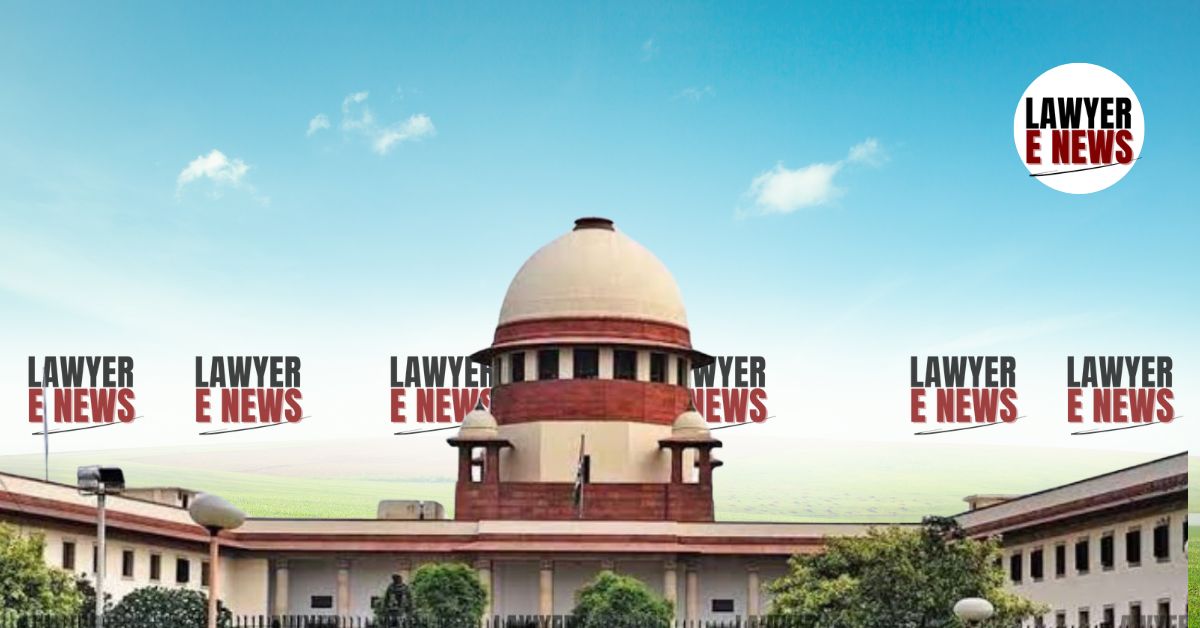-
by Admin
16 February 2026 1:47 PM



“You Can’t Deny What You Don’t Disprove”, Delivering a strong rebuke to the Orissa High Court for undermining clear and uncontested evidence, the Supreme Court of India restored a compensation of nearly ₹69 lakhs to the family of a man who died in a motor vehicle accident, faulting the High Court for arbitrarily reducing the award to less than half. The Supreme Court observed, “In the absence of any evidence to the contrary to disapprove the income of the deceased, such uncontroverted documentary evidence has to be relied upon.”
A 40-year-old man had died after being crushed under a truck in 2015. The Motor Accident Claims Tribunal (MACT) had granted his widow and family compensation based on a salary certificate showing ₹35,000 monthly income. However, the High Court reduced this to ₹15,000 without any basis, prompting the aggrieved family to approach the apex court.
The case stemmed from a fatal accident on June 6, 2015, when Sarban Kumar Sahu, riding pillion on a motorcycle, was thrown off and run over by a rashly driven truck. His legal heirs, including his widow Rasmita Sahu, filed a claim under Section 166 of the Motor Vehicles Act, seeking ₹40 lakhs in compensation.
The MACT at Phulbani awarded ₹68,93,300, applying the accepted principles: future prospects, dependency deductions, and the 15-multiplier based on age. This was based on a salary certificate produced by the claimants, showing a monthly income of ₹35,000.
The Orissa High Court, however, drastically slashed this compensation to ₹29.85 lakhs, rejecting the salary proof, and adopting ₹15,000 as the monthly income based on “guesswork” rather than evidence. The High Court offered no reasoned basis for rejecting the unchallenged certificate.
The Supreme Court condemned this approach and restored the MACT's findings. Referring to the salary certificate marked as Exhibit 5, the Court observed:
“The respondents did not adduce any evidence or even cross-examine the claimants to disprove the certificate. In such circumstances, the documentary evidence must be treated as credible.”
The bench of Justices Sanjay Karol and Sandeep Mehta cited the precedent laid down in Kishan Gopal v. Lala, reaffirming that when the opposite party fails to contest the salary documents, the burden of disproof cannot be shifted to the claimant.
Criticising the High Court’s speculative reduction of income, the Court said:
“The High Court acted on no credible basis while reducing the income to ₹15,000. There was no rebuttal. The certificate remained unshaken. Justice demands reliance on the material placed on record, not assumptions.”
The Court also applied the established principles of compensation, adding future prospects at 40%, deducting 1/4th towards personal expenses, and granting amounts under the conventional heads such as loss of estate and consortium, with a 10% increment.
The total compensation, thus recalculated, was ₹68,93,300, nearly matching the MACT’s original award.
This judgment underscores that justice cannot be sacrificed at the altar of judicial speculation. When uncontroverted evidence is on record, it must be respected. The Supreme Court reiterated that economic dignity of dependents must be protected, and compensation must reflect the real loss—not arbitrarily guessed estimates.
In the words of the Court, “Once income certificate is on record and not disproved, it must be accepted.” That is not just a legal doctrine—it is the baseline of fairness. This verdict not only restores the rightful compensation to a grieving family but also strengthens the principle that judicial discretion must be exercised with evidence, not imagination.
Date of Decision: May 20, 2025
